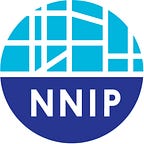Fostering Trust between Health Systems and the Communities They Serve
A publication of the Local Data for Equitable Communities Resource Hub
To strengthen their efforts to narrow persistent health inequities, health systems should aim to build trust with the communities they serve. By building authentic relationships with community members, they can better share understanding of the key drivers of health outcomes as well as what neighborhoods need to become places where all residents can thrive. To that end, the recent community-based participatory research project led by Corewell Health South (Corewell), a health system in southwest Michigan, offers valuable lessons for health systems across the country. The project’s community-driven survey on trust and the subsequent allocation of microgrants for resident projects demonstrate how a large health institution can collaborate with community partners to foster mutual trust.
Corewell, a participant in the Robert Wood Johnson Foundation’s Using Local Data to Address Structural Racism grant program, partnered with three community organizations: the Benton Harbor Community Development Corporation, Benton Heights Community Development Council, and Present Pillars, a Black fatherhood initiative. Using a survey designed collaboratively with community members in previous projects, Corewell surveyed residents across Berrien County. The survey covered residents from Benton Harbor, a majority-Black community, and St. Joseph, a neighboring majority-white community. Benton Harbor has significantly worse health outcomes, in part because of the community’s long history of disinvestment. The neighborhoods of Benton Harbor have fewer healthy community assets, such as sidewalks, public parks, and streetlamps, compared with those in St. Joseph.
The survey asked residents which aspects of community trust they believed were important and needed improvement as well as residents’ level of trust in the health system. The responses revealed the importance residents place on safety, quality infrastructure, and opportunities for community socializing. By investing in the data collection and sharing the results publicly through a Facebook Live event, Corewell demonstrated a commitment to sharpening its understanding of residents’ goals and concerns.
The survey findings and related community engagement also helped Corewell better target areas where it can serve as a partner to local organizations to mitigate health inequities between cities like Benton Harbor and St. Joseph. For example, Corewell Health South collaborated with the Benton Heights Community Development Council and neighborhood Boys and Girls Club to fund social activities in Benton Heights. It also hosted community dinners with regular attendance of more than 50 people, featuring representatives from area health and service organizations who shared information about available resources. These collaborating organizations’ equity-focused approaches included a microgrant initiative to encourage moving from understanding to action. They distributed grants of up to $500 for projects related to the priorities expressed in the trust survey results. One grant went to Total Wellness by Choice, a wellness event in a neighborhood park to promote the revitalization of nearby Ox Creek. Another supported the Colfax Block Club, a neighborhood club with the mission of bringing neighbors together and equipping them with the knowledge and skills to keep their area clean and safe. By working with local partners to fund these projects, Corewell supported efforts to address health inequities that reflected community members’ concerns and centered resident leadership in improving their neighborhoods.
Going forward, Corewell is using its experience with the survey to inform other data collection initiatives, such as a client-patient survey at Corewell’s Center for Wellness in Benton Harbor. It is also sharing the survey findings internally and with the state’s health system board to identify ways to improve trust in health care systems. Finally, Corewell is using the survey findings to advocate for continued funding of programs that build relationships with and benefit residents and is committed to sustaining and growing the relationships fostered during the project.
